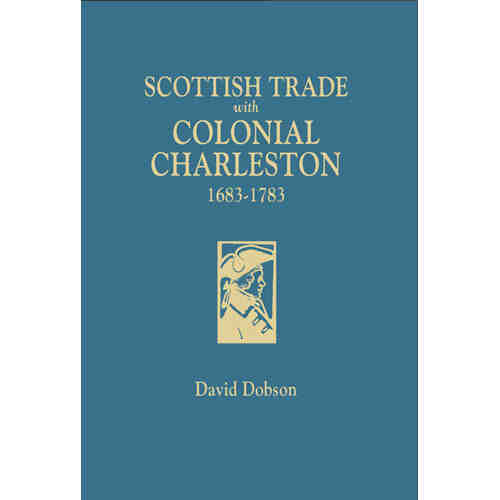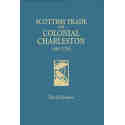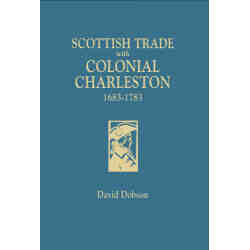The eighteenth century saw the transformation of the economy and society of Scotland from being relatively primitive, compared to those of mercantile rivals England and the Netherlands, to being one of the most-developed European nations of the period. Several factors came together to create this situation, of which the single-most important was Scotland’s level of participation in transatlantic trade. Raw materials were obtained from the American colonies, which allowed Scotland to process new items for trade, notably tobacco and timber. Also, benefits were increasingly obtained from the access to capital, technology, and expertise from England, Holland, and France–all feeding the industrial revolution in Scotland.
The colonial city of Charleston, South Carolina, grew to become the center of commerce for the southern region of British North America, comprising South Carolina, much of North Carolina, and Georgia. This region had links with the West Indies, Africa, the lower Mississippi valley, and latterly Florida. It largely produced, processed, and exported all the major colonial raw materials, timber, furs, sugar, rice, indigo, and–to a small extent–tobacco.
Drawing upon original sources found in both Scotland and Charleston, David Dobson here identifies the Scots merchants doing business in Charleston as well the merchants in Scotland with whom they traded. Also covered are the quantities and types of goods bought and sold; the importance of family connections and networking in the success of Scotland’s trading ventures, both in financial terms and the wider commercial activities generated; the role of ship-building; Scottish emigration, both voluntary and involuntary; and other factors that characterized the Charleston-Scotland nexus.
As eighteenth-century South Carolina was unarguably an economy based on slavery, it was virtually impossible for any resident there not to be either directly or indirectly involved in the use of slave labor. Chapter Five of this work examines the extent to which–and in which capacities–Scots participated in the slave trade between Africa, the West Indies, and South Carolina. It considers the selection of slaves; their transportation, sale, and eventual employment in the colony; and the available evidence of the number of slaving voyages in which the Charleston Scots were involved, the numbers of slaves landed in Charleston, and the locations in Africa or the West Indies from which they came.
Another chapter deals with colonial produce exported by Scots merchants from Charleston bound for Scotland and Europe. It examines the items despatched, either raw materials or semi-processed goods that Charleston was in a position to export, and the extent to which they were locally produced within South Carolina or brought in from elsewhere in America, the colonies in and around the Caribbean, or even Africa. The chapter shows the markets that these merchants supplied and how the restrictions of the Navigation Acts were set aside to enable commerce to expand. It also covers the impact of international rivalry and periods of hostilities on the Charleston trade.
Most of Dobson’s original research for Scottish Trade with Colonial Charleston was conducted in Charleston, London, and Edinburgh. The main sources were the library of the South Carolina Historical Society in Charleston, the National Archives (formerly the Public Record Office) in London, and National Records of Scotland in Edinburgh (formerly the Scottish Record Office). The State Library in Raleigh, North Carolina, especially its massive British Colonial Records collection, was another major source of information.



